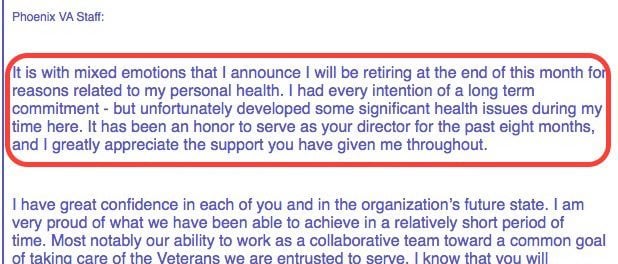Army Establishes Special Needs Support Office for Enhanced Family Assistance
Secretary of the Army, Christine Wormuth, has unveiled a significant initiative designed to enhance the support system for military families with special needs members. The establishment of the Army Exceptional Family Member Program (EFMP) central office is set to improve the coordination and delivery of healthcare, educational, and various family support services, thus facilitating a smoother stationing process for families requiring specialized care.
Building on Foundations for Improved Support
The new central office for the EFMP marks an advancement in the Army’s efforts to cater to the unique challenges faced by its families. This initiative aligns with Department of Defense (DoD) guidelines that call for a more standardized and effective framework of support across the military. It addresses long-standing issues related to the accessibility and quality of medical care and education for families with special needs, which were highlighted during a Congressional hearing in February 2020.
Advocacy and Tailored Support Through the Central Office
Secretary Wormuth emphasized the central office’s role in advocacy and support, stating, “The foundation of Army readiness depends on taking care of our soldiers and families. Each Army family is unique, and the EFMP Central Office will provide tailored support for over 40,000 families enrolled in EFMP.” This initiative is a testament to the Army’s commitment to addressing systemic challenges and ensuring that military families remain cohesive and supported.
Dedication to Military Families
Highlighting the comprehensive nature of the support provided, the program is designed to work in collaboration with both military and civilian agencies to offer a wide array of support services, ranging from housing to healthcare and education. The central office aims to serve as a pivotal resource for the more than 40,000 families currently enrolled in the EFMP, reinforcing the Army’s dedication to the well-being of its members and their families.
Guidance and Support for Navigating the Program
The Army encourages families to first utilize services offered by Army Community Service or military treatment facilities, with the EFMP Central Office positioned as a resource for additional support. Lt. Gen. Kevin Vereen, Deputy Chief of Staff for G-9, highlighted this, saying, “EFMP-support agencies at the installation level are well postured to assist families, but when a support agency or family member needs additional assistance to find the right resources, the EFMP Central Office team members are there to help.”
Collaboration and Continuous Improvement
The Department of Defense’s Office of Special Needs works in concert with the new EFMP Central Office, underscoring the collaborative effort to support military families with special needs. This partnership is key to developing policies, overseeing the EFMP, and ensuring that families receive the comprehensive support and resources they need.
This initiative’s impact will be gauged by its ability to meaningfully enhance the lives of military families, addressing critical needs while setting a new standard for support within the military community.
Frequently Asked Questions
What is the purpose of the EFMP Central Office?
The EFMP Central Office is designed to enhance the support system for military families with special needs members by improving the coordination and delivery of healthcare, educational, and various family support services. It aims to streamline the stationing process for families requiring specialized care and provide tailored support for over 40,000 families enrolled in the program.
How does the EFMP Central Office differ from the services offered at the installation level?
While EFMP-support agencies at the installation level are equipped to offer immediate assistance and resources, the EFMP Central Office is tasked with handling more complex cases and providing advocacy at the Army headquarters and Department of Defense levels. It offers an additional layer of support, focusing on personalized care and addressing systemic challenges within the program.
Who is eligible for the EFMP, and how can one enroll?
Military families with a member who has a physical, emotional, developmental, or intellectual disorder requiring specialized health care or educational services are eligible for the EFMP. Enrollment is done through the soldier’s unit EFMP coordinator or medical personnel, who can guide the family through the assessment and documentation process required for enrollment.
What types of support does the EFMP provide?
The EFMP offers a wide range of support services, including but not limited to, housing assistance, healthcare coordination, educational support, and personalized family support. This includes working with military and civilian agencies to ensure that families have access to necessary resources and services tailored to their unique needs.
What should families do if they encounter difficulties with the EFMP or need additional support?
Families are encouraged to first reach out to their Army Community Service or military treatment facility professionals for assistance. If additional support is needed or if families encounter barriers to accessing services, they can contact the EFMP Central Office for further assistance. Lt. Gen. Kevin Vereen, Deputy Chief of Staff for G-9, assures that “the EFMP Central Office team members are there to help” families navigate the system and find the right resources.






You better get all the support that you can while in service because at VA there’s nothing but benefits. And if you have a problem yourself, physical problem, you can expect to wait at least 10 years to get it fixed. To get it fixed right away you’d literally have to get into a car accident and claim that the problem is due to the accident. I’ve personally thought about crashing my car in order to get them to fix musculoskeletal problems. That’s how bad the problem is and that’s about what I’d have to do to get them to do surgery. As far as mental health is concerned, it’s implied that if you get benefits that’s what you’re supposed to use that money for if you need to, but the physical problems you’re shit out of luck unless you’ve got about 50,000 to 100,000 on hand. Otherwise you’ll have to be on employee healthcare somewhere, and if you lose it, you’re fucked.